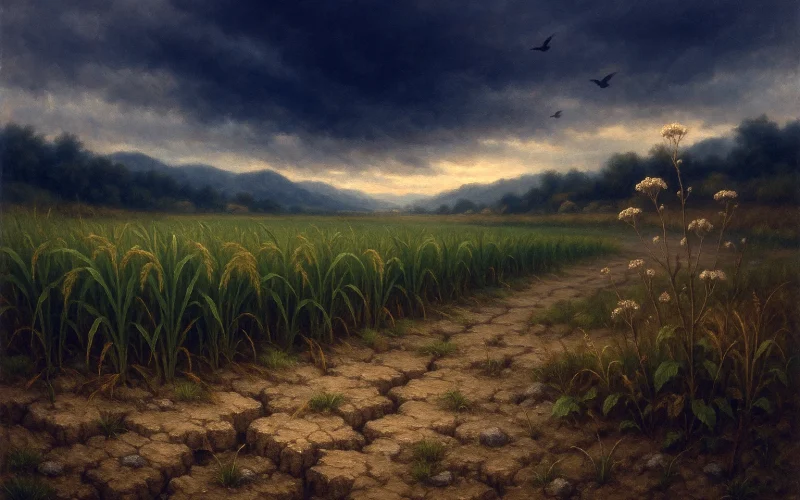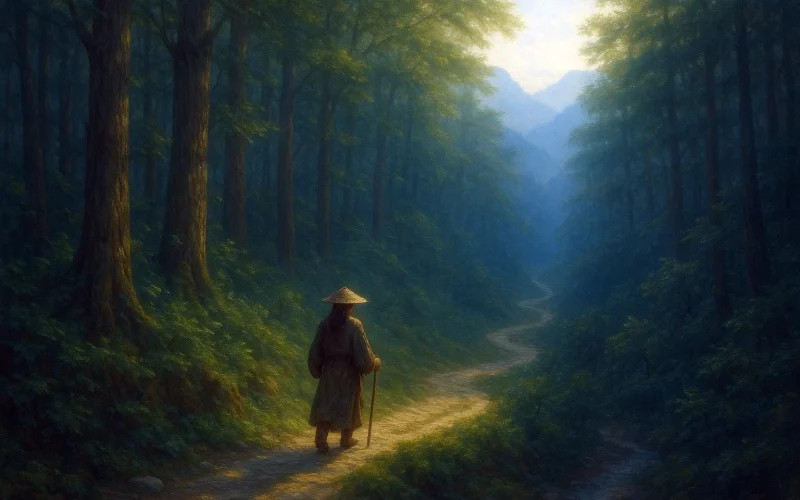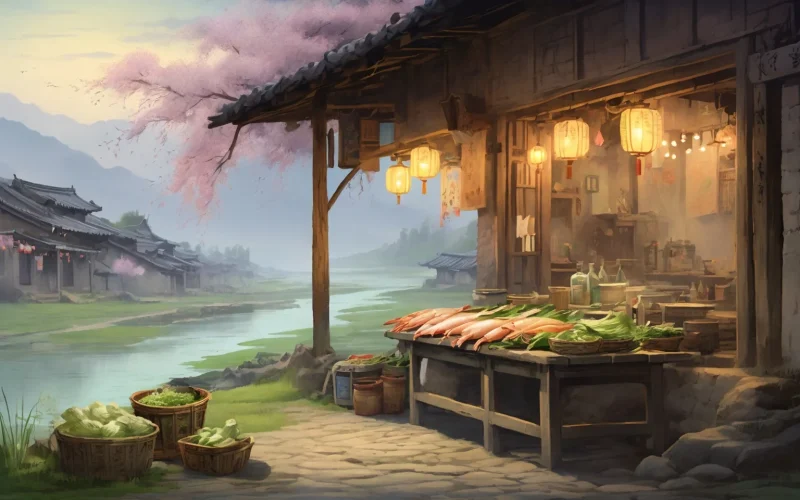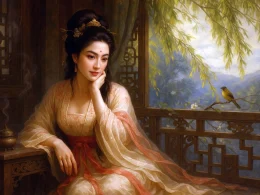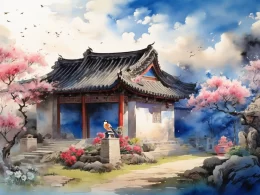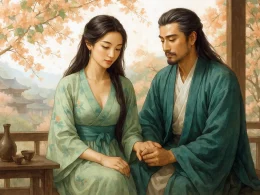Rice clouds bring no rain—scant gold on the field,
Buckwheat's barren blooms frost too soon yield.
Resigned to starve through the year's last phase,
How bear an intercalary month's cruel maze?
Original Poem
「悯农」
杨万里
稻云不雨不多黄,荞麦空花早着霜。
已分忍饥度残岁,更堪岁里闰添长。
Interpretation
Composed in the second year of the Longxing era under Emperor Xiaozong of Song (1164 AD). That year coincided with an intercalary eleventh month, disrupting agricultural rhythms: rice struggled to ripen due to prolonged drought without rain, while buckwheat, though flowering, yielded no grain due to early frost. Yang Wanli, then returning from Hangzhou to Jishui in Jiangxi due to his father's critical illness, witnessed the devastated farmland and impoverished lives of peasants along the way. Deeply moved, he wrote this poem. Through depicting the agricultural plight before his eyes, the work expresses profound sympathy for the farmers' suffering and helplessness towards the injustice of the times.
First Couplet: "稻云不雨不多黄,荞麦空花早着霜。"
Dào yún bù yǔ bù duō huáng, qiáomài kōng huā zǎo zhuó shuāng.
The rice fields, cloud-like in green, without rain seldom turn yellow; buckwheat bears empty blossoms, frost arriving too early.
The poet uses "rice clouds" (稻云 dào yún) and "empty blossoms" (空花 kōng huā) to vividly depict the scene of complete crop failure, making the disaster palpably evident.
Second Couplet: "已分忍饥度残岁,更堪岁里闰添长。"
Yǐ fèn rěn jī dù cán suì, gèng kān suì lǐ rùn tiān cháng.
Already resigned to starving through the lean year, how much more unbearable when the year is lengthened by an intercalary month.
The poet captures the peasants' despair: before overcoming existing hardships, fate deals them another blow.
Holistic Appreciation
Though brief, this poem progresses layer by layer, striking directly at the heart. The first two lines focus on the disaster in the fields—drought and frost arriving together, damaging both rice and buckwheat—painting an extremely bleak picture. The latter two lines turn to the peasants' inner world, expressing how they brace for starvation only to face extended suffering due to the intercalary year. Using plain and natural language, the poet exhaustively portrays the impact of natural disasters on ordinary livelihoods.
The terms "empty blossoms" (空花 kōng huā) and "lengthened" (添长 tiān cháng) are particularly expressive. "Empty blossoms" symbolize not only agricultural loss but also futile effort; "lengthened" makes the "lean year" (残岁 cán suì) seem painfully prolonged, intensifying the agony. Without exaggerated rhetoric, the poem uses calm narration and poignant strokes to make readers keenly feel the peasants' plight.
Artistic Merits
- Precise diction: Words like "rice clouds" (稻云 dào yún), "empty blossoms" (空花 kōng huā), and "lengthened" (添长 tiān cháng) not depict reality but also convey emotion.
- Layered progression: It first describes the natural disaster, then delves into the peasants' state of mind, deepening the impact step by step.
- Small reflects large: In just four lines, it reflects broader societal困境 (kùnjìng, plight), demonstrating the poet's deep concern for livelihoods.
- Genuine and natural: Unadorned and sincerely compassionate, its tone is profoundly earnest.
Insights
This poem is not merely a record of agricultural conditions but also a expression of social conscience. It reminds us to cherish gains in fruitful years and show greater empathy towards people during famines. As a representative of the "诚斋体" (Chéngzhāi tǐ, Chengzhai Style), Yang Wanli wrote not only fresh and leisurely landscape poetry but also such deeply poignant works reflecting现实 (xiànshí, reality). This awareness of public suffering embodies the scholar's sense of responsibility, leaving behind the启示 (qǐshì, insight) of "putting people first" for later generations.
About the Poet
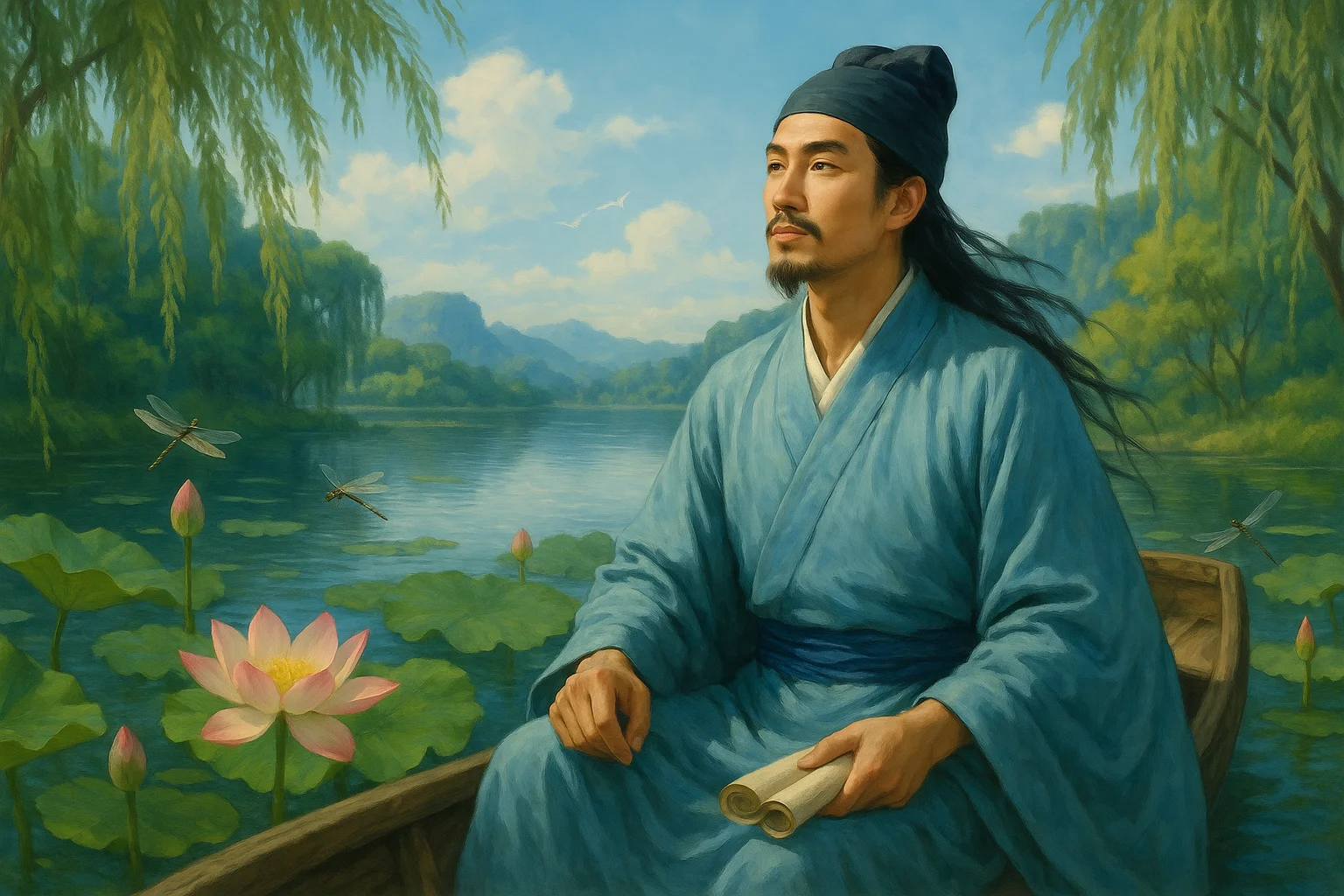
Yang Wanli (杨万里 1127 - 1206), a native of Jishui in Jiangxi, was a renowned poet of the Southern Song Dynasty, celebrated as one of the "Four Great Masters of the Restoration" alongside Lu You, Fan Chengda, and You Mao. He attained the jinshi degree in 1154 and rose to the position of Academician of the Baomo Pavilion. Breaking free from the constraints of the Jiangxi School of Poetry, he pioneered the lively and natural "Chengzhai Style," advocating for learning from nature and employing plain yet profound language. His poetry, often drawing inspiration from everyday life, profoundly influenced later schools of lyrical expression, particularly the Xingling (Spirit and Sensibility) School.






